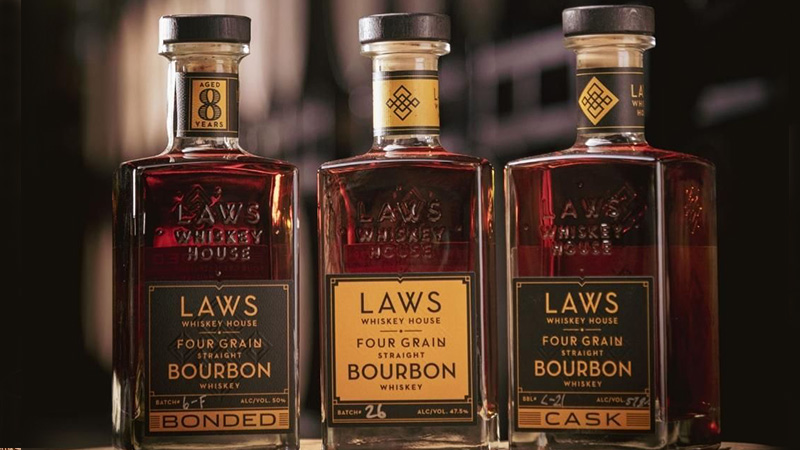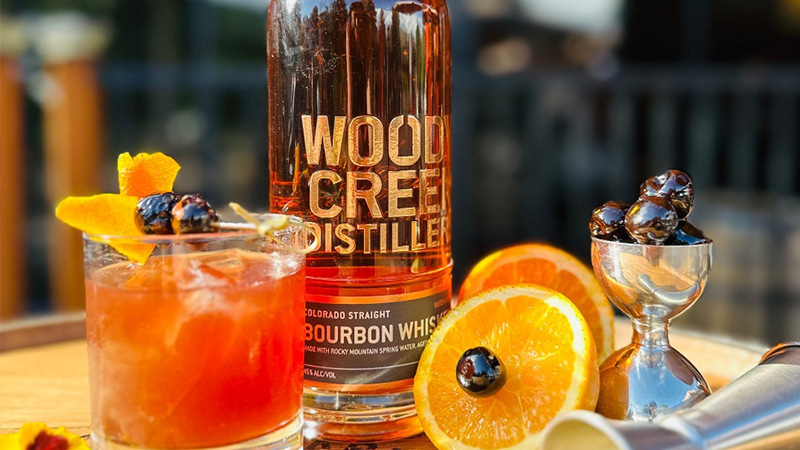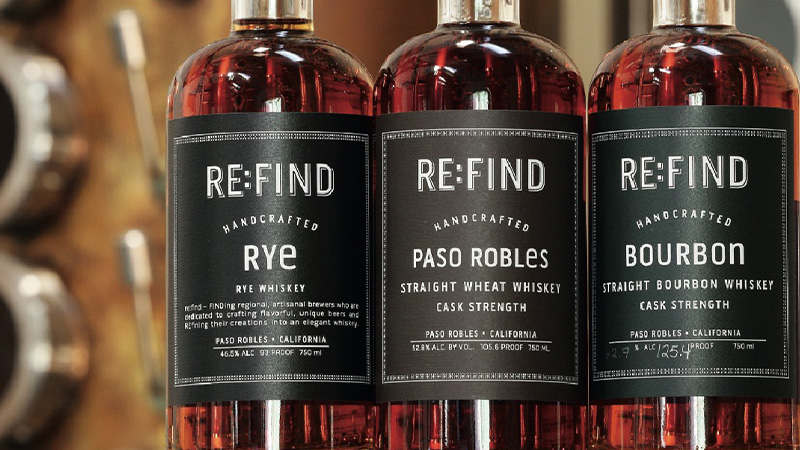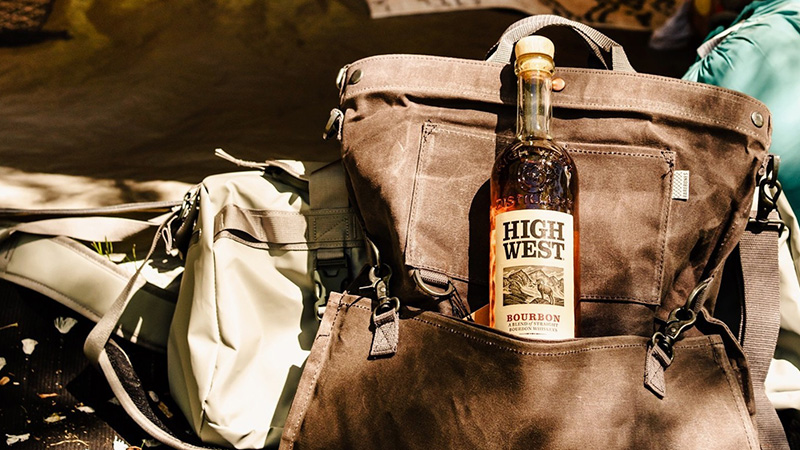Like the rest of the country, the whiskey trails in the Western part of the United States are vast and full of options to explore. The area’s rugged and varied terrain reflects the do-it-yourself attitude of distillers who’ve set up shop in all manner of places, be it small remote towns, large urban centers, or far-out places in the wilderness. Drawing from local ingredients and influenced by local microclimates, the distilleries — and the whiskeys they make — reflect a relaxed and creative attitude common in this part of the country.
Whether it’s the stunningly beautiful Pacific Northwest, influenced by its single malts, or the wide open flats of Colorado and its varied whiskey styles, there’s much to explore. (Even Canada plays a role in this journey, so have those passports handy to explore the whiskeys on the left side of the continent.)
Northwest Whiskey Trail
In the northwest part of the United States and up into Canada, a distiller breed exists that focuses on making North American single malts. This part of the world plays a huge role in producing barley, so it’s no wonder this style of whiskey dominates the region. From here, one can jump on the aptly named Northwest Whiskey Trail, bringing travelers to whiskey makers with a heavy emphasis on local grain use in their spirits.
Don’t Miss A Drop
Get the latest in beer, wine, and cocktail culture sent straight to your inbox.
Starting one’s journey in Canada, a stop-off on this trail should be British Columbia’s Shelter Point. Nestled near the Pacific Ocean and sitting among acres and acres of farmland, Shelter Point’s single malt and single grain whiskies draw heavily from this distillery’s estate-grown barley. A tour and tasting walks through the entire whiskey-making process, followed by sampling several spirits from Shelter Point’s lineup. Heading down into Washington State, a quintessential visit has to be to Westland. One of the best-known distilleries of the American single malt style, Westland’s location in Seattle’s SoDo neighborhood is a significant draw that offers a bar and tasting room with flights and cocktails set among a larger range of nearby urban delights. There’s a guided tour, of course, but it finishes with a 45-minute, in-depth tasting that’s worth the price of admission in itself. Afterward, explore the on-site bottle shop, choosing from flagship whiskeys, specialty ones made from things like American peat, or unique single-cask offerings.
A several-hour drive from Westland takes one across the border into Portland, Ore., where Westward is located. Another prominent American single malt maker, its distillery is just east of the city center for those looking for dinner or drinks afterward. Westward’s beautiful bottle design stands out in its tasting room, particularly with distillery exclusives, such as unique cask finishes, while a tour will have one walking the distillery floor to learn about production techniques. The Westward Whiskey Club is also worth noting, as it offers unique expressions and member events.
Colorado Spirits Trail
Like the Pacific Northwest, Colorado is another distillery-heavy region with a strong emphasis on local grain. The trail offers over 40 spots to visit, whether in the plains, urban cities, or snow-covered peaks that make up the Centennial State’s varied terrains. One nice thing for smartphone users is downloading a Colorado Spirits Trail app instead of the paper map option so standard for these trails.

Laws Whiskey House is worth checking out for those visiting the Denver metro area. Billing itself as a grain-to-glass distillery, all production is done on-site, which visitors can experience with a comprehensive tour. Heirloom grains play a significant role in Laws’ whiskeys, stretching across everything from wheat and barley to rye grown by two Colorado family farms. Nothing here is mass production; a tasting post-tour helps hit that home.
Denver suburb Arvada is home to Talnua Distillery, which produces a whiskey that is somewhat unique to the United States: a single pot still crafted via triple distillation. The feel here is Gaelic meets America (the founders got the idea for the distillery’s theme on their honeymoon in Ireland) with a huge party and specialty whiskey release every St. Patrick’s Day.

Up in the mountains, the town of Basalt, which is close to fly fishing, hiking, and other outdoor endeavors, brings adventurers to the door of Woody Creek Distillers. Known for growing many of its own ingredients or sourcing from local farmers, Woody Creek offers some whiskeys and other spirits, but the biggest claim to fame is its celebrity tie-in to actor William H. Macy. Folks might run into him in the tasting room if lucky, but even if not, a well-structured cocktail program using Woody Creek spirits makes it worth some hang-out time.
Paso Robles Distillery Trail

While California is known far and wide for wine, distilleries have also made significant inroads. And one region where wine and liquor meet is in Paso Robles. A specialized distillery trail here has multiple offerings focused on whiskey and, given the area’s wine focus, a lot of brandy. Two distilleries of note are Re:Find and Rod & Hammer. Re:Find, Paso Robles’ first craft distillery, has partnered with legendary Firestone Walker Brewing for its whiskey program, while nearby San Luis Obispo-based Rod & Hammer dials in the whiskey by cutting it with purified Pacific Ocean water you can enjoy while having time later to stroll the city’s vibrant downtown.
Utah’s Spirits Trail
Utah is yet another state with a growing craft spirits movement, highlighted by the over 15 distilleries included in Utah’s Spirit Trail. Visitors can purchase trail guidebooks at any participating distillery, collect stamps along the way, and once all distiller stamps are acquired, participants earn a certificate of achievement and a trophy.

Easily the best known of Utah’s distilleries, High West is a must-visit. The original Saloon in Park City has a definite Old West feel, while the more modern Distillery and Tasting Room in Wanship is where most of the whiskey-making magic happens these days, offering both well-known High West favorites and rarer expressions. Both locations offer substantial food options as well.
In contrast to the much larger High West, South Salt Lake-based Dented Brick operates on a significantly smaller scale. It offers a wide range of spirits, including whiskeys made from 100 percent unmalted rye grain, and its tasting tours are simple in terms of both the amount of ground covered and the price.